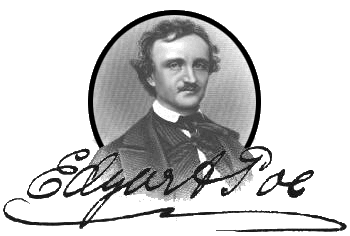I was reading an article by Floyd Stovall called "The Conscious Art of Edgar Allan Poe where he examines how Poe approached his writing. Stovall spends some time talking about the poem "THE RAVEN" and says: I think it quite possible that "The Raven" was planned in advance of composition very much as Poe says it was in "The Philosophy of Composition." The difference between the early and late poems is chiefly in the technique of composition. The former are predominantly the lyric expression of moods in the style of the romantic poets...the latter are more dramatic in form and characterized in style by novelties of rhyme, repetition, meter and stanza structure, with elements of the fantastic..." I do think there is a lot to be gained from this as we look at how we write stories today.
In the present day, I think there is this belief that we have to rush through everything. If we don't finish this project today then someone will likely come along and steal the idea from us and get published before we do. While this might certainly be the case, I think it is a bit of an exaggeration. Yes, I do know this happens because I have had it happen to one of my clients, but this is the exception. The result, of this rushing though is a product that might come across as weak, choppy and certainly lacking the finesse of those authors we like to read on a daily basis.
For many, we have these great ideas about your stories in the beginning. At this point, we are driven by, as Stovall points out, "the lyric expression of moods." We are fascinated by the characters we see in our heads and the words they crank out. The problem though is that many of these thoughts might not be fully realized on the page at this early stage. In many ways, I think of this as that "honeymoon phase" of your writing. Everything is perfect and you are in complete bliss.
But, to truly move your writing to that next level, we have to go back through and really give that writing a good "going over." This is when you really go for it when it comes to the editing. Surprisingly, this is a harder task than many authors think. In the eyes of many authors, that first draft was perfect and going back to change things is really tough. We're afraid if we go back and change things, the magic of those words and the strength of those characters will disappear. Yes, this could happen, but again, the odds are the story will only get better.
It is in these later stages of editing that the real magic can happen. This is the time when you can really make the words of those characters sing and leap off of the page. When you first wrote the words, the passion and emotion was likely only in your head. Yes, you felt it when you read the words, but the phrasing on the page might not convey that same feeling. This is the art of "wordsmithing."
As an agent, I often see projects where I can sense that the author knew what they wanted to say. It comes across in the pitch they tell me at a conference, or in the query letter and blurb they send for that initial submission. I see things like this and I am excited to read this project. But when we read the actual writing, the story lacks the depth of character and plot development. The writing is not as strong as I had hoped for. I will be honest about this - seeing projects like this is very depressing. I think other agents would agree with this. We hear of those projects and we start drooling just to get our hands on it... and then it falls apart.
Take the time to work through it. Move to make the words say what you want them to say.

No comments:
Post a Comment